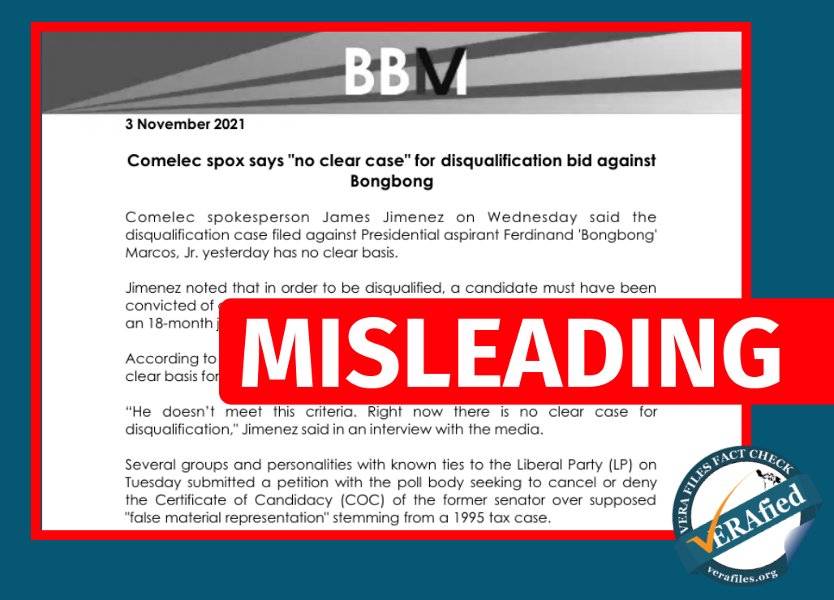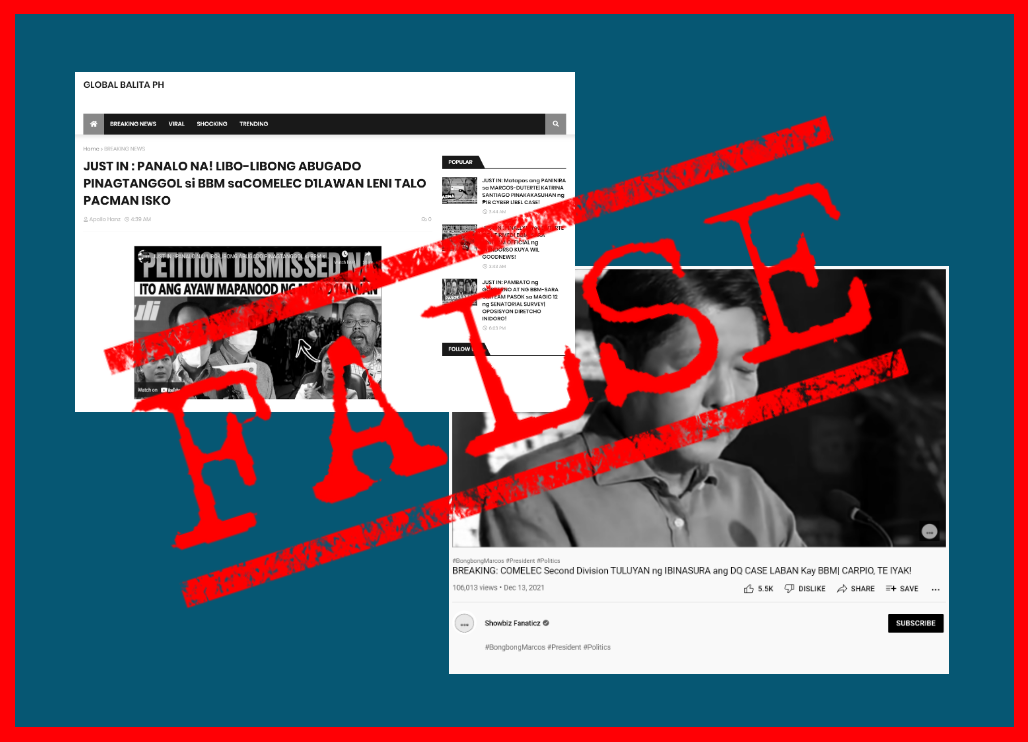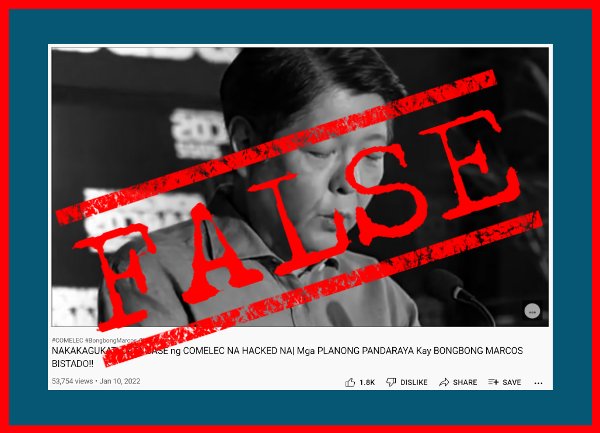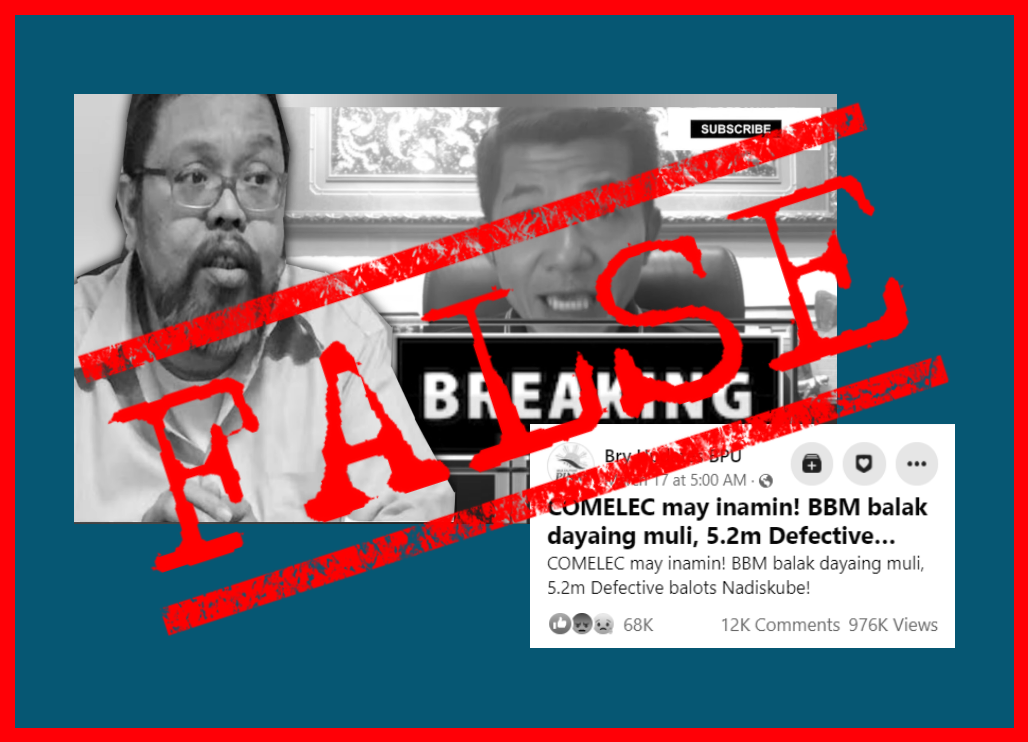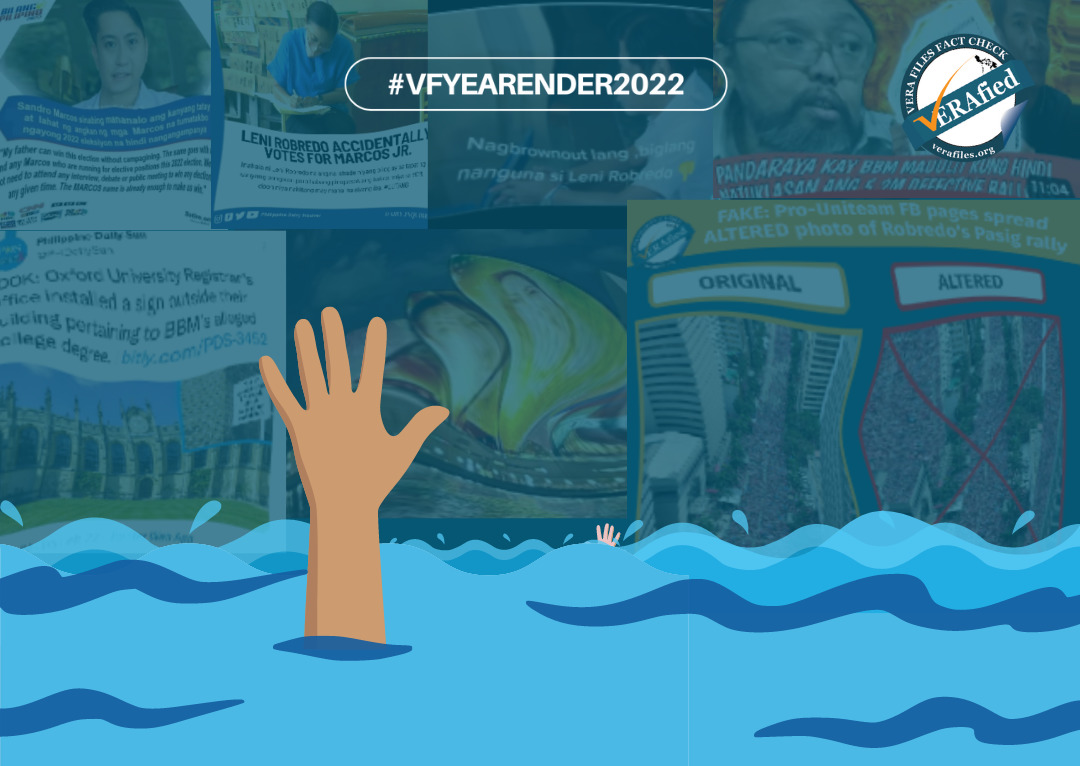It has happened not just once but twice already that the Marcos camp knew about the decisions of the Commission on Elections (Comelec) ahead of the public, fueling speculations that it is getting insider information pertaining to the petitions against presidential aspirant Ferdinand “Bongbong” Marcos Jr.
During the Marcos-Duterte proclamation rally on Feb. 8, Harry Roque Jr., former spokesman for President Rodrigo Duterte and a senatorial contender, thanked the two Comelec commissioners for junking the disqualification petitions against Marcos Jr.
“Hayaan n’yo na magpasalamat din ako sa mga miyembro ng Second Division ng Comelec sa pagbabasura sa petition for DQ (disqualification) ni Bongbong Marcos. Nagpapasalamat din po ako doon sa dalawang commissioner na, sang-ayon sa isang retiradong commissioner, ay bumoto para ibasura rin ang DQ ni Bongbong Marcos,” Roque told the crowd gathered at the Philippine Arena in Bocaue, Bulacan.
Two days later, the Comelec announced that its First Division had dismissed the consolidated disqualification cases against Marcos Jr. for lack of merit, confirming the information from Roque that two commissioners indeed voted against the petition. Roque was wrong only in attributing it to the Second Division.
“The consolidated petitions of Ilagan v Marcos Jr., Akbayan v Marcos Jr. and Mangelen v Marcos Jr. have been dismissed for lack of merit by the Comelec’s First Division,” Comelec spokesman James Jimenez said in a tweet on Feb. 10.
Last Nov. 18, Marcos Jr.’s spokesman, Victor Rodriguez, said in an interview that the poll body’s Second Division had granted the presidential aspirant’s motion for extension of time to answer the petition for the cancellation of his certificate of candidacy.
“We were given an extension of time… I think we were granted seven days from yesterday (Nov. 17),” Rodriguez said when interviewed on CNN Philippines.
This came after former Supreme Court spokesman Theodore Te, who is representing the petitioners who filed a disqualification case against Marcos Jr., reminded the Comelec that its “inextendable period” for the presidential aspirant to file a verified answer to the petition ended on Nov. 16.
The Marcos camp asked for an extension of time, which was opposed on Nov. 17 by the petitioners who, at the same time, requested the Comelec to observe its own rules, specifically Rule 23, section 4(6), which was cited in the summons to Marcos Jr.
It turned out that the opposition was filed after the Second Division had already granted the motion for extension of time.
A few hours after the CNN interview with Rodriguez, Comelec spokesman Jimenez denied that the Marcos camp had been given more time to answer the disqualification petition, saying that he had confirmed with a commissioner of the Second Division handling the case that there had been, in fact, no resolution to the motion for extension.
After a couple of hours, Te said he received via email a Comelec notice that the motion was indeed granted. Jimenez eventually confirmed it.
In both instances, it would seem that the Marcos camp has well-placed sources within the Comelec and they manage to get the decisions ahead of the poll body’s spokesman and the petitioners.
At the UniTeam proclamation rally on Feb. 8, Roque told the crowd that in a democracy, it should be the voters who should judge who should become president, not just a Comelec commissioner, apparently a potshot at former commissioner Rowena Guanzon whose vote for the disqualification of Marcos Jr. was no longer counted because the decision came out after she retired on Feb. 2.
Guanzon’s allegation of influence peddling in the disqualification cases against Marcos Jr. and the incidents in which his camp had advance information on crucial decisions are not ideal situations in a democratic environment, particularly when it relates to a candidate whose father once ruled the country under a dictatorship.
These incidents are also the least that the Comelec needs to erase doubts on the credibility of the election results in May.
The views in this column are those of the author and do not necessarily reflect the views of VERA Files.
This column also appeared in The Manila Times.

